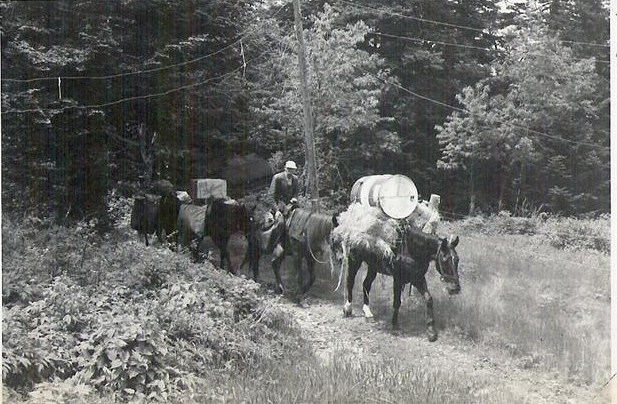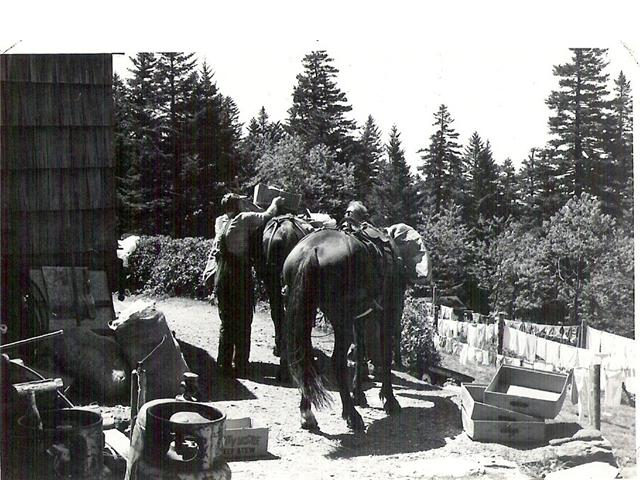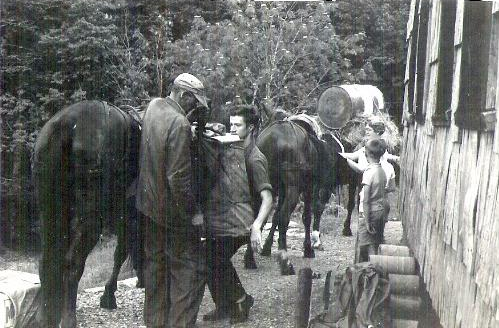| LeConte Lodge Alumni Site |
Ken Attenhofer's Photos;
Page Four
For many years from when the Lodge was opened by Jack Huff in the 1920's, until sometime that I do not know, supplies were brought to the Lodge by packhorse. The horses came from Cherokee Orchard, outside of Gatlinburg, up the Rainbow Falls trail, about 8 miles, to the Lodge. At some point the horses were replaced by pack llamas because the llamas have soft, broad feet that do not tear up the trail the way horses' hooves do. Also, I think llamas are less temperamental than horses.
There was a barn in Cherokee Orchard where supplies -- mostly food -- were stocked. Every day at the Lodge we changed the sheets on beds that had been used the night before and dirty sheets, pillow cases, and towels were sent down on the packhorses. Clean laundry came back up on the horses. As I recall, there were three pack trains a week, sometime four. The horses came up and went back down the same day.
Occasionally we needed a horse to help with logging -- dragging in logs to be cut up for firewood. In that case, the pack horses would come up, one horse would stay in the barn at the Lodge, and the others would go back. We would keep the horse for 2-3 days then he would go back to packing duties.
During the summers of 1962 and 1963 when I worked at the Lodge the individual who brought the horses up and down -- the "Pack Man" -- was Amos Matthews from near Pigeon Forge, TN. Viola Matthews, Amos' wife, worked at the Lodge as a cook. She stayed in a small, one-room cabin next to the kitchen.
Here are a couple of photos from Ken of the packhorse operation.

Amos and the horses arriving at the Lodge, loaded.
Hmmm. The word "loaded" in the caption has two meanings -- the horses are loaded, and, sometimes Amos had a few drinks on the way up and occasionally he arrived loaded also. The 55-gallon drum on the lead horse probably is carrying kerosene for the lanterns we used throughout the Lodge. It would be only about one-fourth full because a full drum would have been too heavy. Note the pack bags on the side of each horse. Amos sometimes walked up with the horses, sometimes he rode as in this photo.

Unloading horses outside the kitchen door.
Notice the wash on the line. Sometimes when we had a lot of guests we would run out of clean laundry. Then, we would fire up the generator, boil water on the stove, and use electricity from the generator to operate an old wringer washing machine and wash a few towels, etc. We also washed our clothes about once a week.

Unloading horses.
Ken and Amos taking one of the pack bags off a horse. The boy on the right is Glenn Brown, the owner's son. The lady beyond Glenn is Viola, Amos' wife.
| Back to page one of Ken's photos |
| Back to page two of Ken's photos |
| Back to page three of Ken's photos |
| Forward to page five of Ken's photos |